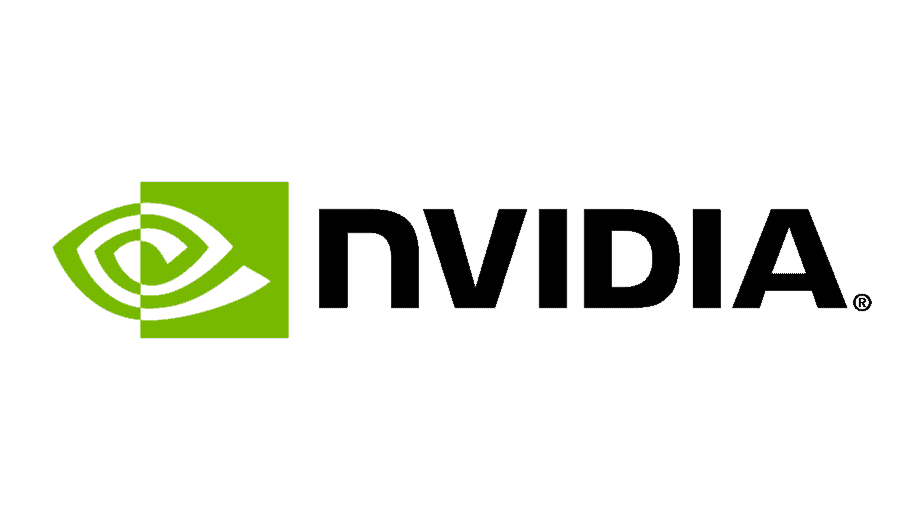Introduction
Artificial Intelligence (AI) has become a driving force in various industries, revolutionizing the way businesses operate and providing lucrative opportunities for investors. In this exploration, we delve into the realm of AI intelligence stocks, identifying key players and assessing the dynamics that shape this ever-evolving sector.
1. Who are the Major Players in AI Intelligence Stocks?
Key Companies:
- NVIDIA Corporation
- International Business Machines (IBM)
- Alphabet Inc. (Google)
- Microsoft Corporation
- Tesla Inc.
Market Dynamics:
- Emerging startups like Palantir Technologies
- China’s tech giants: Alibaba, Tencent, and Baidu
1. NVIDIA Corporation: Pioneering the Graphics Processing Unit (GPU) Revolution

Background and Founding Principles
NVIDIA Corporation, founded in 1993 by Jensen Huang, Chris Malachowsky, and Curtis Priem, emerged as a trailblazer in graphics processing units (GPUs). Initially focused on creating high-performance GPUs for gaming and professional markets, NVIDIA’s evolution into the AI landscape was nothing short of revolutionary.
Contributions to AI
NVIDIA’s GPUs, particularly the CUDA architecture, became a catalyst for the acceleration of AI computations. The parallel processing capabilities inherent in GPUs were harnessed for AI tasks, transforming the company into a linchpin for AI and machine learning (ML) applications. Today, NVIDIA’s GPUs are integral components in data centers worldwide, fueling AI breakthroughs and innovations. NVIDIA Canvas turn sketches into stunning landscapes.
Strategic Initiatives and Partnerships
The company’s commitment to AI is evident in its strategic initiatives and partnerships. NVIDIA collaborates with major players in diverse sectors, including healthcare, finance, and autonomous vehicles. Initiatives like the NVIDIA Inception Program support startups working on AI-driven solutions, fostering innovation within the ecosystem.
Financial Standing and Market Dominance
With a market capitalization that reflects its dominance, NVIDIA consistently posts strong financial results. Its revenue growth is propelled by the increasing demand for AI-related technologies. The acquisition of Arm Limited in 2020 further solidified NVIDIA’s position as a key player in the semiconductor industry, expanding its reach across various AI-driven applications.
2. International Business Machines (IBM): Pioneering AI for Decades

Legacy and Founding Principles
International Business Machines (IBM) stands as a tech giant with a legacy dating back to the early 20th century. Founded in 1911, IBM has been at the forefront of technological innovations. In the realm of AI, IBM has played a pivotal role for several decades, contributing to the foundational principles of the field.
AI and Cognitive Computing
IBM’s commitment to AI is exemplified by its development of cognitive computing systems, notably IBM Watson. Watson, a pioneer in natural language processing, gained fame for defeating human champions in the game show Jeopardy! IBM’s dedication to advancing AI capabilities has positioned it as a leader in providing AI solutions for enterprises.
Cloud and Quantum Computing
In addition to AI, IBM has made significant strides in cloud computing. IBM Cloud offers a robust platform for AI and data analytics, empowering businesses to leverage AI capabilities at scale. Moreover, IBM is a frontrunner in quantum computing research, exploring the potential of quantum technologies to revolutionize computing.
Collaborations and Open Source Initiatives
IBM actively engages in collaborations and open-source initiatives to propel AI research. Contributions to projects like TensorFlow and partnerships with major corporations underscore IBM’s commitment to advancing AI as a collaborative and inclusive endeavor.
3. Alphabet Inc. (Google): AI at the Core of Technological Innovation

Birth of Google and Foundational AI Principles
Alphabet Inc., the parent company of Google, was founded by Larry Page and Sergey Brin in 1998. Google’s journey in AI began with its core search algorithms, setting the stage for the company’s expansive foray into artificial intelligence.
Google’s AI Portfolio
Google’s AI prowess is manifested in a diverse portfolio of products and services. From the integration of AI in search algorithms to the development of the TensorFlow framework, Google has consistently pushed the boundaries of what AI can achieve. Products like Google Assistant and Google Translate showcase the practical applications of AI in everyday life.
AI in Healthcare and DeepMind Acquisition
Alphabet’s commitment to improving healthcare through AI is evident in subsidiaries like Verily Life Sciences. Additionally, the acquisition of DeepMind in 2015 positioned Alphabet as a frontrunner in AI research. DeepMind’s AlphaGo victory demonstrated the potential of AI in complex problem-solving, capturing global attention.
Ethical AI and Responsible Development
Google places a strong emphasis on ethical AI and responsible development. The company actively engages in discussions surrounding the ethical implications of AI, striving to create AI technologies that benefit society while minimizing potential risks.
4. Microsoft Corporation: Empowering AI for Global Impact

Microsoft’s Origins and AI Integration
Founded by Bill Gates and Paul Allen in 1975, Microsoft Corporation has been a driving force in the technology industry. In recent decades, Microsoft has strategically integrated AI into its products and services, transforming the company into a key player in the AI landscape.
Azure AI and Cloud Services
Microsoft’s Azure AI platform provides a comprehensive suite of tools and services, enabling developers to build AI applications with ease. The Azure cloud infrastructure empowers businesses to scale AI solutions globally, making AI accessible to enterprises of all sizes.
AI in Productivity Tools
Microsoft has infused AI into its productivity tools, enhancing user experiences. Features like real-time language translation in Microsoft Office and AI-driven suggestions in Microsoft 365 demonstrate the practical applications of AI in improving efficiency and collaboration.
Commitment to Accessibility and Responsible AI
Microsoft’s commitment to accessibility is reflected in its AI for Accessibility initiative, leveraging AI technologies to empower people with disabilities. Additionally, the company places a strong emphasis on responsible AI, actively engaging in research and initiatives to ensure ethical AI development and deployment.
5. Tesla Inc.: AI Driving the Future of Mobility

Tesla’s Evolution and Elon Musk’s Vision
Tesla Inc., founded in 2003 by Martin Eberhard and Marc Tarpenning, has become synonymous with innovation in the automotive industry. Under the visionary leadership of Elon Musk, Tesla has embraced AI as a cornerstone for the future of mobility.
Autopilot and Full Self-Driving
Tesla’s Autopilot, an advanced driver-assistance system, utilizes AI algorithms to enhance vehicle safety and autonomy. The ambitious Full Self-Driving (FSD) capability aims to achieve fully autonomous driving, showcasing Tesla’s commitment to pushing the boundaries of AI in the automotive sector.
Neural Networks and AI Hardware
The neural networks embedded in Tesla vehicles continuously learn from real-world data, improving their ability to navigate diverse driving scenarios. Tesla’s custom-designed AI hardware, including the Full Self-Driving cars, exemplifies the company’s dedication to developing AI-specific hardware for optimal performance.
AI in Energy and Sustainable Solutions
Beyond automotive applications, Tesla leverages AI in its energy products. The optimization of solar energy generation and storage solutions through AI reflects Tesla’s holistic approach to sustainability and its belief in AI as a catalyst for positive environmental impact.
What Drives the Success of AI Intelligence Stocks?
Factors Driving Success:
Breakthroughs in AI Research and Development:
AI intelligence stocks thrive on continuous breakthroughs in research and development (R&D). Companies at the forefront invest heavily in R&D to pioneer new algorithms, models, and applications. Breakthroughs, such as advancements in natural language processing or computer vision, often lead to increased market valuation and investor confidence.
Example – NVIDIA’s CUDA Architecture:
NVIDIA’s CUDA architecture revolutionized AI computations by harnessing the parallel processing capabilities of GPUs. This breakthrough significantly accelerated AI tasks, making GPUs a cornerstone in data centers globally.
Integration of AI in Diverse Industries:
The successful integration of AI into diverse industries contributes significantly to the success of AI intelligence stocks. Companies that demonstrate practical applications of AI, addressing industry-specific challenges, attract investors seeking long-term growth potential.
Example – IBM’s Cognitive Computing Systems:
IBM’s development of cognitive computing systems, particularly IBM Watson, showcases the integration of AI in healthcare, finance, and other sectors. Watson’s success in natural language processing positions IBM as a leader in providing AI solutions for enterprises.
Strategic Partnerships and Acquisitions:
Collaborations, partnerships, and strategic acquisitions play a pivotal role in the success of AI intelligence stocks. Companies that form alliances or acquire innovative startups gain a competitive edge, expanding their AI capabilities and market reach.
Example – Google’s Acquisition of DeepMind:
Alphabet’s acquisition of DeepMind in 2015 propelled Google into the forefront of AI research. DeepMind’s AlphaGo victory and subsequent contributions to AI research demonstrate the power of strategic acquisitions in driving success.
Market Trends:
Rise of AI in Healthcare, Finance, and Autonomous Vehicles:
Market trends indicate the increasing prominence of AI in sectors such as healthcare, finance, and autonomous vehicles. Investors closely monitor companies making significant strides in these areas, anticipating sustained growth.
Example – Microsoft’s AI in Healthcare:
Microsoft’s Azure AI platform facilitates the development of AI applications in healthcare. The integration of AI in medical diagnostics and treatment planning reflects a market trend with immense growth potential.
Increasing Demand for AI-Driven Solutions in Business Operations:
As businesses seek efficiency and innovation, there is a growing demand for AI-driven solutions in various operational aspects. Companies offering AI tools that enhance productivity and decision-making witness increased investor interest.
Example – Google’s AI in Productivity Tools:
Google’s infusion of AI into productivity tools, such as real-time language translation in Microsoft Office, aligns with the market trend of enhancing business operations through AI-driven features.
When is the Right Time to Invest in AI Intelligence Stocks?

Considerations:
Monitoring Technological Advancements:
Investors keen on AI intelligence stocks should monitor ongoing technological advancements. The introduction of new AI algorithms, hardware innovations, or breakthroughs in AI ethics can influence market dynamics.
Example – Tesla’s Continuous AI Updates:
Tesla’s continuous software updates for Autopilot and Full Self-Driving showcase the importance of monitoring technological advancements. Investors closely watch for improvements in AI capabilities that enhance Tesla’s autonomous driving features.
Assessing Market Trends and Demands:
Understanding market trends and demands is crucial for pinpointing the right time to invest. Identifying sectors with increasing demand for AI solutions provides valuable insights for investors.
Example – IBM’s Focus on Cloud Services:
IBM’s emphasis on cloud services aligns with the market trend of businesses migrating to the cloud for scalable AI solutions. Investors considering IBM assess the demand for cloud-based AI services.
Economic and Geopolitical Factors:
Economic conditions and geopolitical factors can impact the AI industry. Investors should consider global economic trends, regulatory environments, and geopolitical stability when evaluating AI intelligence stocks.
Example – NVIDIA’s Market Expansion in China:
NVIDIA’s expansion in China reflects strategic considerations related to economic factors and geopolitical opportunities. Investors factor in such expansions when assessing the right time to invest.
Investment Strategies:

Long-Term Investment in Established Players:
Long-term investors often favor established players with a proven track record in AI. Companies with sustained growth, strong financials, and a history of innovation are attractive for those seeking stable, long-term investments.
Example – Alphabet Inc.:
Alphabet’s diversified portfolio, including Google’s AI advancements and subsidiaries like DeepMind, positions it as a long-term investment. Investors recognize the stability and growth potential associated with Alphabet.
Tactical Investments in Promising Startups:
Investors seeking higher-risk, higher-reward opportunities may opt for tactical investments in promising startups. Startups with innovative AI solutions and the potential for disruptive impact can yield substantial returns.
Example – NVIDIA’s Inception Program:
NVIDIA’s Inception Program, supporting startups working on AI-driven solutions, represents a tactical investment strategy. Investors interested in early-stage innovations may explore opportunities within NVIDIA’s ecosystem.
Where Does the Future of AI Intelligence Stocks Lie?
Growth Prospects:
AI in Robotics and Automation:
The integration of AI in robotics and automation presents significant growth prospects. Companies focusing on AI-driven solutions for robotics and automated systems are poised to shape the future of industries like manufacturing and logistics.
Example – Tesla’s AI in Robotics:
Tesla’s advancements in AI for vehicle automation extend to the broader concept of AI in robotics. Investors eyeing the future of automation consider Tesla’s role in shaping this transformative landscape.
Continued Advancements in Natural Language Processing:
Natural language processing (NLP) remains a focal point for AI intelligence stocks. Continued advancements in NLP technologies contribute to the growth of AI applications in communication, virtual assistants, and language-related tasks.
Example – Google’s Language Processing Innovations:
Google’s ongoing innovations in natural language processing, as seen in Google Assistant and language translation features, indicate a future where AI seamlessly interacts with human language.
Ethical Considerations and Regulations:
The future of AI intelligence stocks is intertwined with ethical considerations and regulatory frameworks. Investors recognize the importance of companies that prioritize ethical AI development and navigate regulatory landscapes effectively.
Example – Microsoft’s Emphasis on Responsible AI:
Microsoft’s commitment to responsible AI, reflected in its research and initiatives, positions the company for future growth. Investors anticipate the impact of ethical considerations on the trajectory of AI intelligence stocks.
Market Expansion:
Penetration of AI in Emerging Markets:
AI intelligence stocks have significant growth potential in emerging markets. Companies expanding their AI solutions into diverse regions tap into new opportunities and contribute to the global dissemination of AI technologies.
Example – IBM’s Global Reach:
IBM’s global presence and initiatives in AI for emerging markets showcase the company’s commitment to expanding the reach of AI solutions. Investors assess how companies approach market expansion as a key indicator of future growth.
Evolving Applications in Climate Science and Sustainability:
The future of AI intelligence stocks extends to applications in climate science and sustainability. Investors increasingly focus on companies leveraging AI to address environmental challenges and contribute to sustainable solutions.
Example – Alphabet’s Initiatives in Sustainability:
Alphabet’s initiatives, such as using AI to optimize energy consumption, exemplify a forward-looking approach to sustainability. Investors interested in the intersection of AI and environmental solutions assess companies with a commitment to sustainability.
Advantages and Disadvantages of Investing in AI Intelligence Stocks

Advantages:
Potential for Exponential Growth:
One of the primary advantages of investing in AI intelligence stocks is the potential for exponential growth. Companies leading in AI innovations can experience rapid market expansion, leading to substantial returns for investors.
Example – NVIDIA’s Growth Trajectory:
NVIDIA’s growth trajectory, fueled by the increasing demand for its GPUs in AI applications, exemplifies the potential for exponential growth in the AI intelligence sector.
Diversification of Investment Portfolio:
Investing in AI intelligence stocks provides an opportunity for diversification within an investment portfolio. As AI spans various industries, investors gain exposure to diverse sectors undergoing AI-driven transformations.
Example – Alphabet’s Diversified Portfolio:
Alphabet’s diversified portfolio, encompassing Google’s search algorithms, AI in healthcare through Verily, and innovative subsidiaries like DeepMind, illustrates the diversification potential for investors.
Contribution to Technological Innovation:
Investors in AI intelligence stocks contribute to technological innovation. By supporting companies at the forefront of AI research and development, investors play a role in driving advancements that shape the future.
Example – Microsoft’s Technological Advancements:
Microsoft’s contributions to AI through Azure, productivity tools, and responsible AI initiatives showcase how investors can contribute to technological innovation in the AI intelligence sector.
Disadvantages:
Volatility and Market Unpredictability:
One of the disadvantages of investing in AI intelligence stocks is the inherent volatility and market unpredictability. Factors such as technological shifts, regulatory changes, and competitive dynamics contribute to fluctuations in stock prices.
Example – NVIDIA’s Sensitivity to Market Dynamics:
NVIDIA, sensitive to market dynamics and technological trends, has experienced periods of volatility. Investors navigating the AI intelligence sector must be prepared for market uncertainties.
Ethical and Societal Concerns:
Investing in AI intelligence stocks comes with ethical and societal concerns. Issues related to biased algorithms, privacy infringements, and the societal impact of AI-driven automation raise considerations for responsible investing.
Example – Google’s Ethical Challenges:
Google’s ethical challenges, including controversies around AI applications, highlight the importance of investors addressing ethical concerns in their investment decisions.
Dependency on Continuous Technological Advancements:
Investors in AI intelligence stocks should be aware of the dependency on continuous technological advancements. Companies must stay at the forefront of AI innovations to remain competitive, and investors may face risks if companies lag in technological progress.
Example – Tesla’s Continuous Updates:
Tesla’s continuous updates for Autopilot and Full Self-Driving underscore the need for companies to stay technologically relevant. Investors evaluating AI intelligence stocks assess companies’ commitment to ongoing advancements.
FAQs
- Are AI intelligence stocks a safe investment?
- AI stocks can offer high returns, but they come with inherent risks. It’s crucial to conduct thorough research.
- How can investors stay updated on AI intelligence stock trends?
- Regularly follow industry news, financial reports, and technological advancements.
- What sectors show promising growth in AI intelligence stocks?
- Healthcare, finance, autonomous vehicles, and robotics are among the sectors with high growth potential.
Conclusion
The landscape of AI intelligence stocks is dominated by these key players, each contributing uniquely to the evolution of artificial intelligence. From semiconductor innovations and cognitive computing to search algorithms, cloud services, and automotive autonomy, these companies shape the future of AI. As investors navigate the dynamic world of AI intelligence stocks, understanding the in-depth strategies, contributions, and financial standings of these companies is essential for making informed investment decisions.
Comments from internet on AI stocks:
- AI is all the rage right now. OpenAI’s ChatGPT went viral late in 2022, attracting big investment from perennial software giant Microsoft and prompting internet search leader Google parent Alphabet to respond with its own AI services. An artificial intelligence arms race has begun.
- NVIDIA is flying under the radar atm, tremendous momentum.
-
They make personal loans using automated underwriting(ie a computer algo decides whether to extend the loan), there’s still some human verification involved.
This is basically the norm today. Conforming mortgage loans sold to Fannie/Freddy also use automated underwriting. The difference with UPST is they use an AI to underwrite loans instead of a fixed set of criteria a human had programmed.
- At this point the AI mania combined market cap far exceeds the entire annual revenue of the semiconductor industry. Even Nvidia on Its own is double the global annual semi revenue. For an investment to be sort of acceptable it should beat a 5% discount rate at the very least. That means within around 15 years you’d want your Investment back in earnings if you bought the entire business. In other words, the entire AI hardware sector revenue would have to rapidly grow and quickly exceed the entire semiconductor industry far beyond the current production capacity and pretty much all of the industry profits would have to go to Nvidia with no margin pressure which means without meaningful competition at all, at which point Nvidia would be as good to buy as government bonds. Now add a risk premium. If Nvidia doesn’t 10x its earnings within the next 4-5 years, there’s no mathematical reason to justify its value. That said, people never do the math so who knows how long they’ll keep the charade going. Roughly every person in the developed world would have to fork over 1500-2000$ annually in AI expenses to get the revenue for the industry to be that high or something like that, i didn’t look for accurate numbers or definitions of developed world. In any case its crazy much and means that every city would need several large AI servers (Basically one 200k server unit pr 120 citizens) And that’s not happening at least not within a foreseeable future, theres no evidence at all to support this.
- What true ai does Tesla even have? They’re getting passed by legacy automakers when it comes to self driving now, Musk just talks about it more and says how it’s going to be complete “next year”, every year for the past like 7 years.
- Why would you categorize TSLA as AI? They already announced they are putting the autonomous car project aside. That being said, they are left as a crappy car manufacturer, and basic battery packager
- screw it. ive impulsively put 400$ i really cant afford to spend onto a couple shares from those first 3. why not, im already barely staying out of interest payments on my credit card, might as well throw some more money to the wind in the hopes that maybe ill make a couple bucks. figured a crappy diversification on random companies i know nothing about would be better than trying to get in on a single share in the VAST bubble already formed on nvidia.
What are your views ?